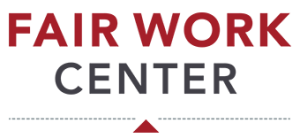How One City Is Making Sure Bosses Comply With Wage Theft and Paid Sick Leave Laws
Beecher’s Handmade Cheese, a cornerstone of Seattle’s Pike Place Market, claims (with good reason) that its penne mac and cheese is the finest in America. Dining at Beecher’s is a must.
Working there may be less advisable. Deric Cole, an Army vet, worked at Beecher’s for seven months, beginning in 2014. He says that turnover was so high that when he quit, he was a senior employee. Shifts varied from day to day, he adds, sometimes starting at 3 a.m. and occasionally lasting up to 15 hours. Cole says that while Beecher’s technically offered overtime, those who managed to accrue it were punished, and employees were even asked to work off the clock. Cole also alleges that Beecher’s ignored Seattle’s 2012 paid sick leave ordinance and refused to grant any paid time off for illness.
Fed up, Cole eventually brought these complaints to a new city agency designed to help in cases like his: the Office of Labor Standards (OLS), one of the first of its kind in the United States.
Over the past five years, Seattle has implemented sweeping labor laws, instituting paid sick leave, discouraging discrimination against those with prison records, incrementally raising the minimum wage to $15 by 2017 and strengthening wage-theft protections.
But these new laws can’t enforce themselves. One year after OLS’s creation, people like Cole will be among the first to test Seattle’s experiment. Although San Francisco originated the model over a decade ago, it has been slow to catch on. Seattle’s new endeavor could push other cities to adopt enforcement mechanisms for local labor laws.
Read more at inthesetimes.com
